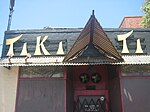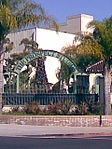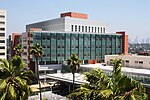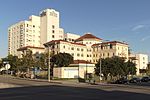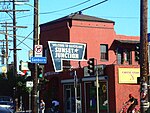KCET Studios
Buildings and structures in Hollywood, Los AngelesCommercial buildings completed in 1914Commercial buildings in Los AngelesHollywood, Los Angeles history and cultureLos Angeles Historic-Cultural Monuments

The KCET Studios, located at 4401 Sunset Boulevard in Hollywood, California is the longest continuously-producing studio in Hollywood. Since its establishment in 1912, the studios located at the site have been the home of motion picture producers, including Lubin, Essanay, Willis and Inglis, J.D. Hampton, Charles Ray, Ralph Like, Monogram Pictures, Allied Artists, and ColorVision. Since 1970, it has been the home of public television station KCET, but in April 2011 KCET announced that it had sold the facility to the Church of Scientology.
Excerpt from the Wikipedia article KCET Studios (License: CC BY-SA 3.0, Authors, Images).KCET Studios
North Hoover Street, Los Angeles Los Feliz
Geographical coordinates (GPS) Address Nearby Places Show on map
Geographical coordinates (GPS)
| Latitude | Longitude |
|---|---|
| N 34.097322 ° | E -118.284745 ° |
Address
North Hoover Street 1431
90027 Los Angeles, Los Feliz
California, United States
Open on Google Maps
